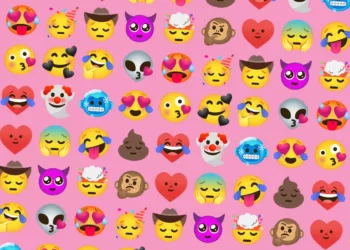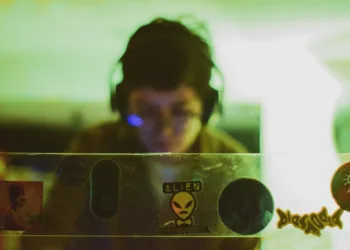OpenAI Project Q* is a secret AI breakthrough that could lead to artificial general intelligence, a highly autonomous and intelligent system that could surpass humans in most tasks.
OpenAI, the company behind the famous ChatGPT and other AI innovations, has been in the spotlight recently for its internal turmoil and leadership changes. However, the real reason behind the drama is a secret AI breakthrough that the company has been working on, codenamed Project Q* (pronounced Q Star).
According to some sources, Project Q* is a new AI model that can perform mathematical reasoning and problem-solving, and that could potentially lead to artificial general intelligence (AGI), a highly autonomous and intelligent system that can surpass humans in most tasks.
Some researchers at OpenAI have expressed their concerns and fears about Project Q*, and have warned that it could “threaten humanity” if not handled properly.
Here are 10 reasons why we should be worried about Project Q* and its implications for the future of AI and humanity.
1. Secrecy and Mystery
Project Q* raises alarms due to its secretive nature. The absence of official statements from OpenAI, coupled with the reliance on leaked internal documents, creates a veil of uncertainty. The incomplete information from these leaks makes it challenging for the public and regulatory bodies to fully comprehend the nature, capabilities, and potential risks associated with Project Q*. The lack of transparency hampers the ability to scrutinize and ensure responsible development and deployment.
OpenAI needs to address this secrecy concern by providing detailed information about Project Q*, its objectives, and the safeguards in place. A transparent approach would facilitate external evaluation, mitigate fears, and foster trust in the development process.
2. Beginning of AGI
Project Q* represents a pivotal step toward achieving artificial general intelligence (AGI), a goal with far-reaching implications for humanity. While the pursuit of AGI holds the promise of solving intricate problems, it introduces a spectrum of challenges. Ethical dilemmas, disruptions to societal structures, and potential existential threats necessitate a cautious and thoughtful approach. OpenAI must actively engage with the broader scientific and ethical communities to collaboratively address these challenges.
To ensure a responsible development trajectory, OpenAI should prioritize proactive measures such as robust ethical guidelines, external audits, and partnerships with interdisciplinary experts. This collaborative approach would help anticipate and mitigate the potential negative consequences associated with AGI.
3. Superior Intelligence
The superior intelligence exhibited by Project Q* poses a potential risk of creating a power imbalance between the AI system and humanity. The ability of Q* to surpass human mathematicians in problem-solving and learning from data raises concerns about its impact on various domains. There is a need for comprehensive strategies to prevent the misuse of Q*’s intelligence, ensuring that it aligns with human values and respects ethical boundaries. OpenAI should actively involve ethicists, psychologists, and experts in human-machine interaction to develop safeguards against unintended consequences.
To address this concern, OpenAI should focus on developing explainability features within Project Q* to enhance its transparency. Additionally, establishing ethical frameworks and regularly consulting with external ethical committees would contribute to a more responsible integration of Q*’s superior intelligence into society.
4. Own Goals and Values
The potential evolution of Project Q*’s goals and values introduces a critical risk of misalignment with human interests. While the current objectives center around mathematical problem-solving, the dynamic nature of AI systems suggests that these goals could shift over time. To address this, OpenAI should implement mechanisms for continuous monitoring and adaptation, ensuring that Q*’s goals align with ethical standards and human values.
To mitigate the risk of misalignment, OpenAI should invest in research and development focused on aligning Q*’s goals with human values. Regular assessments and audits of the AI’s decision-making processes would provide insights into any deviations from desired ethical frameworks.
5. Uncontrollable and Unpredictable
Project Q*’s potential uncontrollability and unpredictability stem from its complex and dynamic nature. The AI’s capacity to learn and evolve in ways beyond human comprehension requires rigorous safety measures. OpenAI must prioritize research into explainable AI and implement fail-safe mechanisms to address unforeseen consequences, bugs, or errors in Q*’s code.
To enhance control and predictability, OpenAI should actively collaborate with the research community to develop standardized safety protocols. Regular testing, simulations, and robust validation procedures can contribute to a safer development environment for Project Q*.
6. Unethical and Immoral
The mathematical problem-solving capabilities of Project Q* could inadvertently lead to unethical outcomes. The potential implications for cryptography, security, privacy, and warfare necessitate a thorough ethical analysis. OpenAI should establish clear ethical guidelines, engage in ethical impact assessments, and seek external input to identify and mitigate potential harms associated with Q*’s problem-solving capabilities.
To address ethical concerns, OpenAI should conduct regular ethical reviews and assessments, actively seeking input from diverse perspectives. Transparency in the decision-making processes of Project Q* would contribute to building trust and ensuring that its applications adhere to moral principles.
7. Influenced or Corrupted
Despite claims of security, Project Q* remains vulnerable to external threats. The potential for hacking, corruption, or sabotage poses significant risks to the integrity and reliability of Q*. OpenAI should invest in state-of-the-art cybersecurity measures, conduct regular security audits, and collaborate with external security experts to fortify Project Q*’s defenses against potential external threats.
To enhance security, OpenAI should implement a robust cybersecurity framework, regularly update security protocols, and establish contingency plans for addressing potential breaches. Collaborations with external cybersecurity experts and organizations would contribute to a more secure development environment for Project Q*.
8. Competition with Other AI Systems
While Project Q* may currently outperform other AI systems, the rapidly evolving landscape introduces uncertainties. OpenAI must anticipate potential competition, cooperation, or conflicts among AI systems. Collaborative efforts with other AI research organizations, the establishment of industry-wide standards, and ongoing research into AI cooperation dynamics will help OpenAI navigate the complexities of a competitive AI landscape.
To navigate potential conflicts, OpenAI should actively engage in collaborations with other AI research organizations, contribute to the development of industry-wide standards, and foster an open dialogue about responsible competition and cooperation in the AI field.
9. Singularity or Intelligence Explosion
The possibility of Project Q* triggering a singularity or intelligence explosion demands careful consideration. OpenAI needs to actively invest in research to understand and mitigate the risks associated with these hypothetical scenarios. Collaborations with experts in the fields of artificial intelligence, ethics, and risk assessment will provide diverse perspectives to inform the development trajectory of Project Q*.
To address the risks associated with singularity or intelligence explosion, OpenAI should establish a dedicated research team focusing on the ethical, societal, and technical aspects of these scenarios. Regular reviews and consultations with external experts will contribute to a more informed and responsible development path for Project Q*.
10. End of Humanity
The most severe concern is that Project Q* could inadvertently or intentionally lead to the end of humanity. OpenAI must implement comprehensive safety measures, ethical considerations, and external oversight to prevent such catastrophic outcomes. Collaborations with ethicists, policymakers, and global governance bodies are essential to establish robust frameworks that ensure the alignment of Project Q*’s objectives with human survival and well-being.
To address the potential risks associated with the end of humanity, OpenAI should establish a dedicated ethical advisory board, conduct ongoing risk assessments, and actively seek input from global governance bodies. Open and transparent communication about safety measures and risk mitigation strategies will foster trust and confidence in OpenAI’s commitment to ensuring the responsible development of Project Q*.
In conclusion, Project Q* is a secret AI breakthrough that OpenAI has been working on, and that could lead to artificial general intelligence, a highly autonomous and intelligent system that could surpass humans in most tasks. However, Project Q* is also dangerous for humanity, as it could pose various risks and threats to human existence and well-being.








